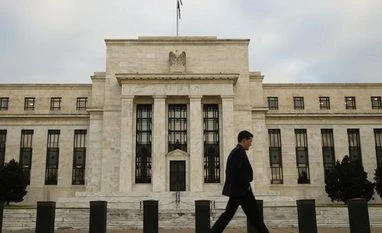A large share of Wall Street securities dealers believe that the growing presence of high-frequency trading firms has made it more difficult to operate in the market for US government debt, according to a Federal Reserve survey published on Tuesday.
High-frequency trading is an automated strategy that can move billions of dollars worth of trades among different markets in a fraction of a second.
A net share of more than two-fifths of dealers that match clients with US Treasury securities think the rise in high-frequency trading has led to wider bid-ask spreads and smaller quote sizes over the last five years, the Fed said in its quarterly survey of senior credit officers.
The 21 institutions participating in the survey account for almost all dealer financing of dollar-denominated securities to non dealers, the Fed said.
How easily investors and traders can buy and sell Treasuries has become a concern in the wake of the Oct. 15, 2014 "flash" rally, when Treasuries registered wild price swings in just a 12-minute period.
The Fed said more than two-fifths of dealers also said their ability to manage positions in the dealer-to-customer market has diminished due to the rising presence of high-frequency trading firms.
)